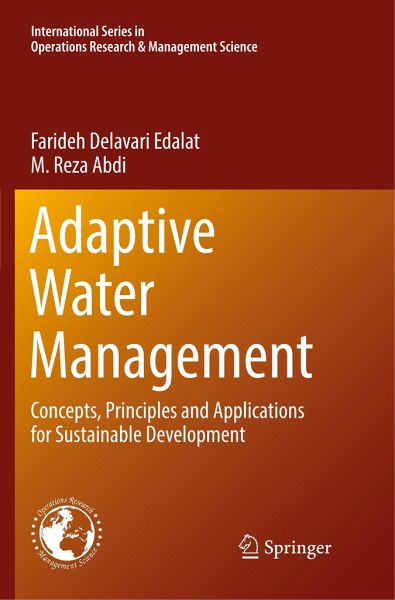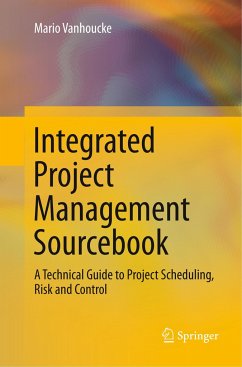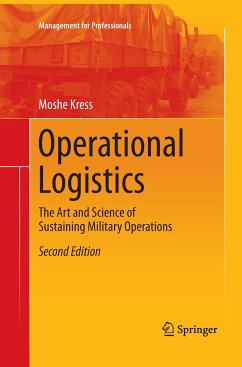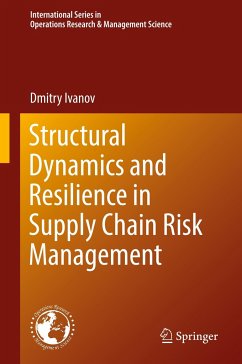
Adaptive Water Management
Concepts, Principles and Applications for Sustainable Development
Versandkostenfrei!
Versandfertig in 6-10 Tagen
91,99 €
inkl. MwSt.
Weitere Ausgaben:

PAYBACK Punkte
46 °P sammeln!
This book explores a new framework of Adaptive Water Management (AWM) for evaluating existing approaches in urban water management. It highlights the need to adopt multidisciplinary strategies in water management while providing an in-depth understanding of institutional interactions amongst different water related sectors.The key characteristics of AWM i.e. polycentric governance, organisational flexibility and public participation are investigated and described through a critical review of the relevant literature. The book presents an empirical case study undertaken in a selected developing-...
This book explores a new framework of Adaptive Water Management (AWM) for evaluating existing approaches in urban water management. It highlights the need to adopt multidisciplinary strategies in water management while providing an in-depth understanding of institutional interactions amongst different water related sectors.
The key characteristics of AWM i.e. polycentric governance, organisational flexibility and public participation are investigated and described through a critical review of the relevant literature. The book presents an empirical case study undertaken in a selected developing-country city to investigate the potential gaps between the current water management approaches and possible implementation of AWM. Feasibility of AWM operations is examined in an environment surrounded by established water management structure with centralised governance and an institutional process based on technical flexibility.
The key elements of AWM performance are (re)structured and transformed into decision support systems. Multi criteria decision models are developed to facilitate quantification and visualization of the elements derived from the case study, which is involved with water companies and water consumers.
The book describes how the concept of AWM, along with structuring suitable decision support systems, can be developed and applied to developing-country cities. The book highlights the barriers for applying the AWM strategies that include established centralised decision making, bureaucratic interactions with external organisations, lack of organisational flexibility within the institutions, and lack of recognition of public role in water management. The findings outline that despite the lack of adaptability in the current water management in the case study, as an example of developing countries, there are positive attitudes among water professionals and the public towards adaptability through public-institutional participation.
The key characteristics of AWM i.e. polycentric governance, organisational flexibility and public participation are investigated and described through a critical review of the relevant literature. The book presents an empirical case study undertaken in a selected developing-country city to investigate the potential gaps between the current water management approaches and possible implementation of AWM. Feasibility of AWM operations is examined in an environment surrounded by established water management structure with centralised governance and an institutional process based on technical flexibility.
The key elements of AWM performance are (re)structured and transformed into decision support systems. Multi criteria decision models are developed to facilitate quantification and visualization of the elements derived from the case study, which is involved with water companies and water consumers.
The book describes how the concept of AWM, along with structuring suitable decision support systems, can be developed and applied to developing-country cities. The book highlights the barriers for applying the AWM strategies that include established centralised decision making, bureaucratic interactions with external organisations, lack of organisational flexibility within the institutions, and lack of recognition of public role in water management. The findings outline that despite the lack of adaptability in the current water management in the case study, as an example of developing countries, there are positive attitudes among water professionals and the public towards adaptability through public-institutional participation.












